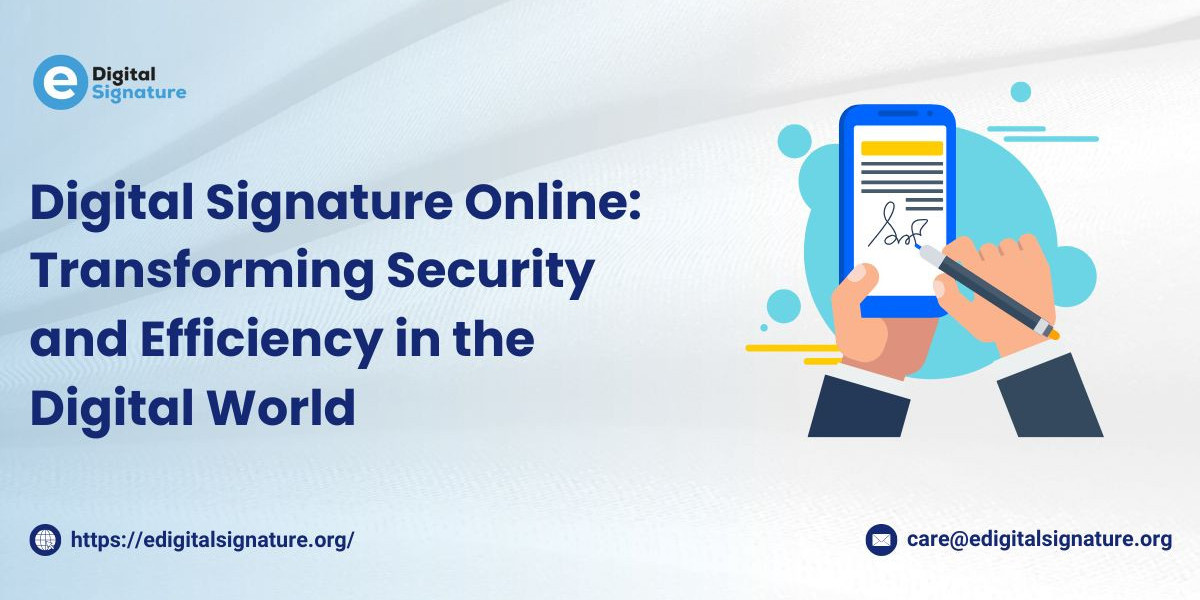In today's increasingly digital world, the demand for secure and efficient methods of conducting business, signing contracts, and exchanging sensitive information has skyrocketed. As the reliance on online transactions grows, so does the need for innovative solutions that ensure the authenticity and integrity of digital interactions. Enter digital signatures—an advanced cryptographic solution that ensures both the authenticity and security of digital communications. When these signatures are applied online, the entire process becomes more accessible, convenient, and secure.
In this article, we will explore the concept of Digital Signatures Online, how they work, the benefits they provide, their widespread applications, the legal and regulatory landscape, and the challenges that come with their use. We will also look at the future of online digital signatures in an ever-evolving digital ecosystem.
What is a Digital Signature?
A Digital Signature is a form of cryptographic security used to verify the authenticity and integrity of digital messages, transactions, or documents. Unlike a traditional handwritten signature, a digital signature relies on asymmetric cryptography—specifically, a pair of cryptographic keys (public and private keys)—to authenticate the identity of the signer and confirm that the signed document has not been altered.
Private Key: The private key is used to encrypt the document or message and create a unique signature. This key is kept confidential and is in the control of the signer.
Public Key: The public key is available to anyone who needs to verify the authenticity of the document. It is used to decrypt the digital signature and check whether it corresponds with the original message.
How Do Digital Signatures Work Online?
A Digital Signature Online allows individuals and organizations to sign and verify documents electronically over the internet. The process remains fundamentally the same as the traditional digital signature process, but it is carried out using online platforms and tools. Here’s a step-by-step breakdown of how an online digital signature works:
Document Preparation: The sender prepares the document or message to be signed. This can be an email, contract, legal document, or any other type of file that requires authentication.
Signing the Document: The signer applies their digital signature using an online signature platform. These platforms typically integrate with document management software, where the signer can upload their document and apply their digital signature using a secure digital ID. The signature is created by encrypting a hash of the document with the signer’s private key.
Transmission of the Signed Document: The signed document is then sent to the recipient through the same online platform or via email, depending on the application.
Verification by the Recipient: Upon receiving the signed document, the recipient can use the public key embedded in the document to verify the signature. The recipient’s software will decrypt the digital signature and compare the hash with a newly generated one from the original document to ensure its integrity.
Certificate Validation: The recipient can also verify the authenticity of the Digital Signature Certificate (DSC) attached to the signature. A DSC is issued by a Certifying Authority (CA), which confirms the identity of the signer. This additional layer provides confidence that the signer is legitimate.
Key Features of Online Digital Signatures
Several key features make digital signatures particularly valuable when applied online:
1. Security
Digital signatures are built on public key infrastructure (PKI), a technology that uses both asymmetric encryption and a trusted third-party authority (the Certifying Authority) to ensure secure communication. The encryption ensures that unauthorized parties cannot tamper with the document, while the private key ensures that the signature is uniquely tied to the signer.
2. Non-Repudiation
One of the most significant advantages of digital signatures is non-repudiation, which means that once a document is signed, the signer cannot deny having signed it. This is particularly important in legal, financial, and contractual matters, where parties need to be certain that the agreement was legitimately made.
3. Integrity
Any changes made to a document after it has been signed will invalidate the digital signature, ensuring that the content remains intact and tamper-proof. This guarantees that the document has not been altered after the signature was applied.
4. Authentication
By using a Digital Signature Certificate (DSC), the identity of the signer can be verified, adding an extra layer of trust and ensuring that the signer is who they claim to be.
5. Convenience
Online digital signatures provide a fast and convenient way to sign and verify documents from anywhere at any time, as long as you have access to the internet. This eliminates the need for in-person meetings or printing and scanning documents, making the process more efficient.
Benefits of Digital Signature Online
1. Cost Savings
Traditionally, document signing required printing, scanning, mailing, and sometimes physical delivery of documents. These tasks incurred costs for both individuals and businesses. By moving the process online, organizations save on paper, printing, postage, and courier services.
2. Speed and Efficiency
The ability to sign and send documents digitally enables faster turnaround times. What once could have taken days or weeks to complete via traditional methods can now be done in a matter of minutes. This helps speed up business processes and minimizes delays.
3. Legal Validity
In many countries, digital signatures are legally recognized and hold the same value as handwritten signatures. Digital signatures provide a higher level of security and accountability, making them a preferred option for legal and business transactions.
4. Enhanced Security
With the integration of encryption, authentication, and verification processes, online digital signatures provide a higher level of security than traditional paper-based methods. They are resistant to forgery and tampering, and their use guarantees the authenticity and integrity of documents.
5. Environmentally Friendly
The use of digital signatures significantly reduces the reliance on paper, which contributes to environmental sustainability. This paperless approach is particularly important as businesses and governments look for ways to reduce their carbon footprint.
Suggested read:- Digital Signature Certificate for Income Tax
Conclusion
Digital Signatures Online have revolutionized the way we conduct business, sign contracts, and ensure the security of online transactions. By offering a secure, efficient, and legally recognized alternative to traditional signatures, digital signatures have become an essential tool in the digital age.
While there are challenges to be addressed, the benefits of digital signatures—such as enhanced security, efficiency, and cost savings—make them indispensable for businesses, government entities, and individuals alike. As technology continues to evolve, we can expect digital signatures to become even more integral to the way we interact with the digital world.







